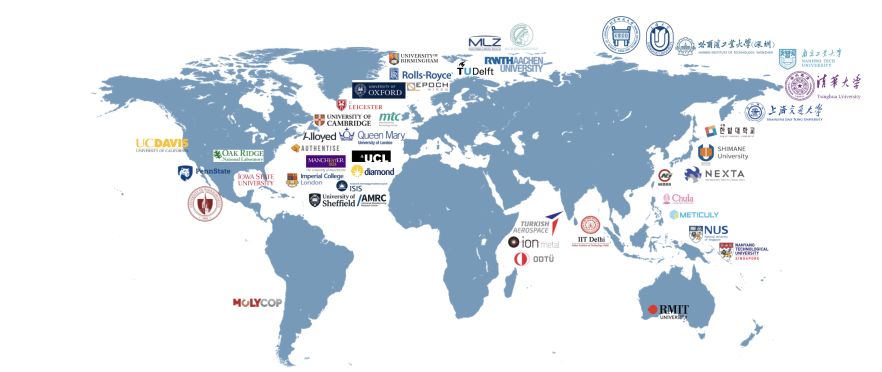Dr Chinnapat Panwisawas
BSc, PhD, CEng, FIMMM, FInstP, FIMechE, FHEA
Research Impact
The academic and industrial impact of Dr Chinnapat Panwisawas' research in materials and manufacturing finds numerous applications in aerospace, automotive and biomedical sectors.
Top 2% of the World Scientists in 2022, 2023 and 2024
Turbine blade manufacturing for future jet engine with Rolls-Royce University Technology Centre
The success of his previous industrial collaborative project between University of Birmingham, Rolls-Royce plc and ISIS Neutron and Muon Source (Science and Technology Facilities Council: STFC) to improve the predictive capability during turbine blade manufacturing has been recognised and published in the Science Highlights section of ISIS Annual Review 2017, which is selected from over 500 ISIS Neutron and Muon Source research papers published every year.
Innovative digital additive manufacturing using science-led in silico approach
The integrated computational materials engineering – an emerging digital approach to improve design and manufacture – is the first application to metal 3D printing and it is highlighted in the website of 3D Printing Industry (3DPI), a global media company in this field. The work led to a successful EPSRC Early Career Fellowship EPSRC UKRI Innovation Fellowship EP/S000828/1 and EP/S000828/2: From Industry 3.0 to Industry 4.0: Additive Manufacturability, aligned well with the UK Industry Strategy 2017/18 in digital technology. One of our articles has a significanct impact and has a FCWI of 9.5.
Predictive physics-based modelling for additive manufacturing of aerospace components
Computational framework of intermetallic precipitation leads to the First Place Award of AM-Bench 2018 Benchmark Challenge (CHAL-AMB2018-01-PFRS) organised by National Institute of Standards and Technology (NIST), USA. More information can be found at https://www.nist.gov/ambench/awards It was recognised as the best modelling results predicting the phase evolution during residual stress annealing of an as-built IN625 bridge structure, which is beneficial to further develop for additive manufacture of nickel-based superalloys for aerospace applications.
Global collbaoration map (as of September 2023)


